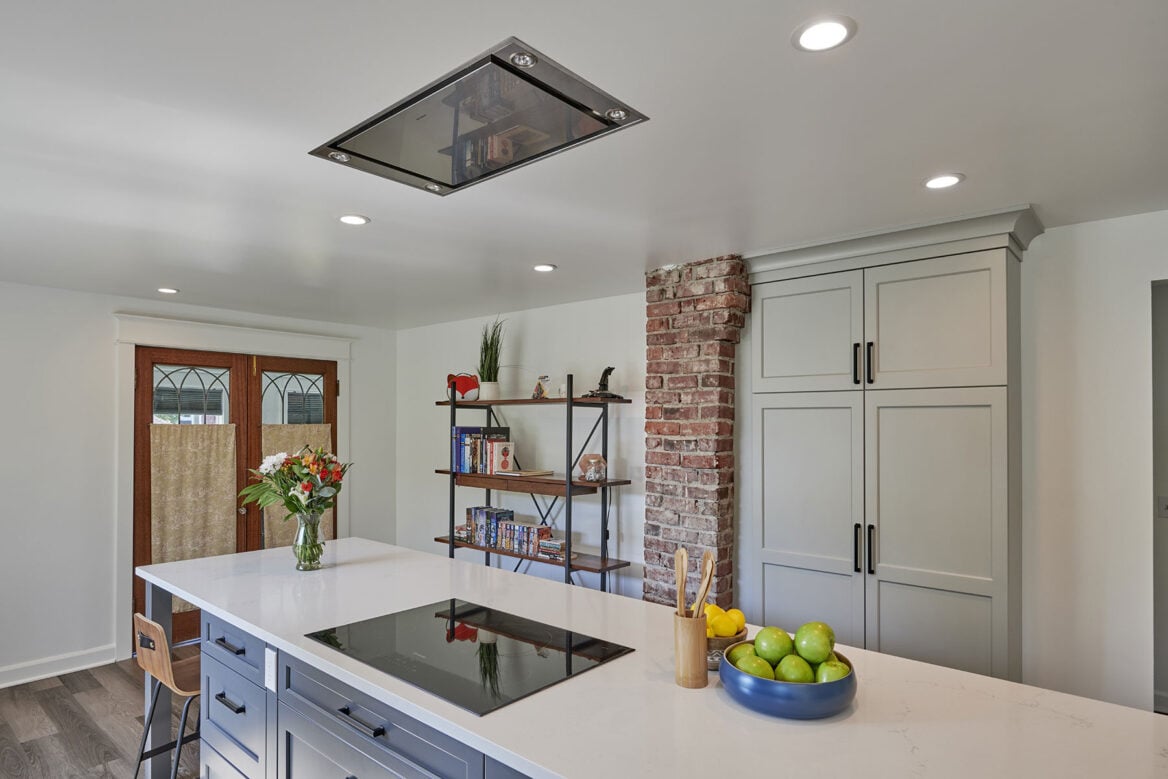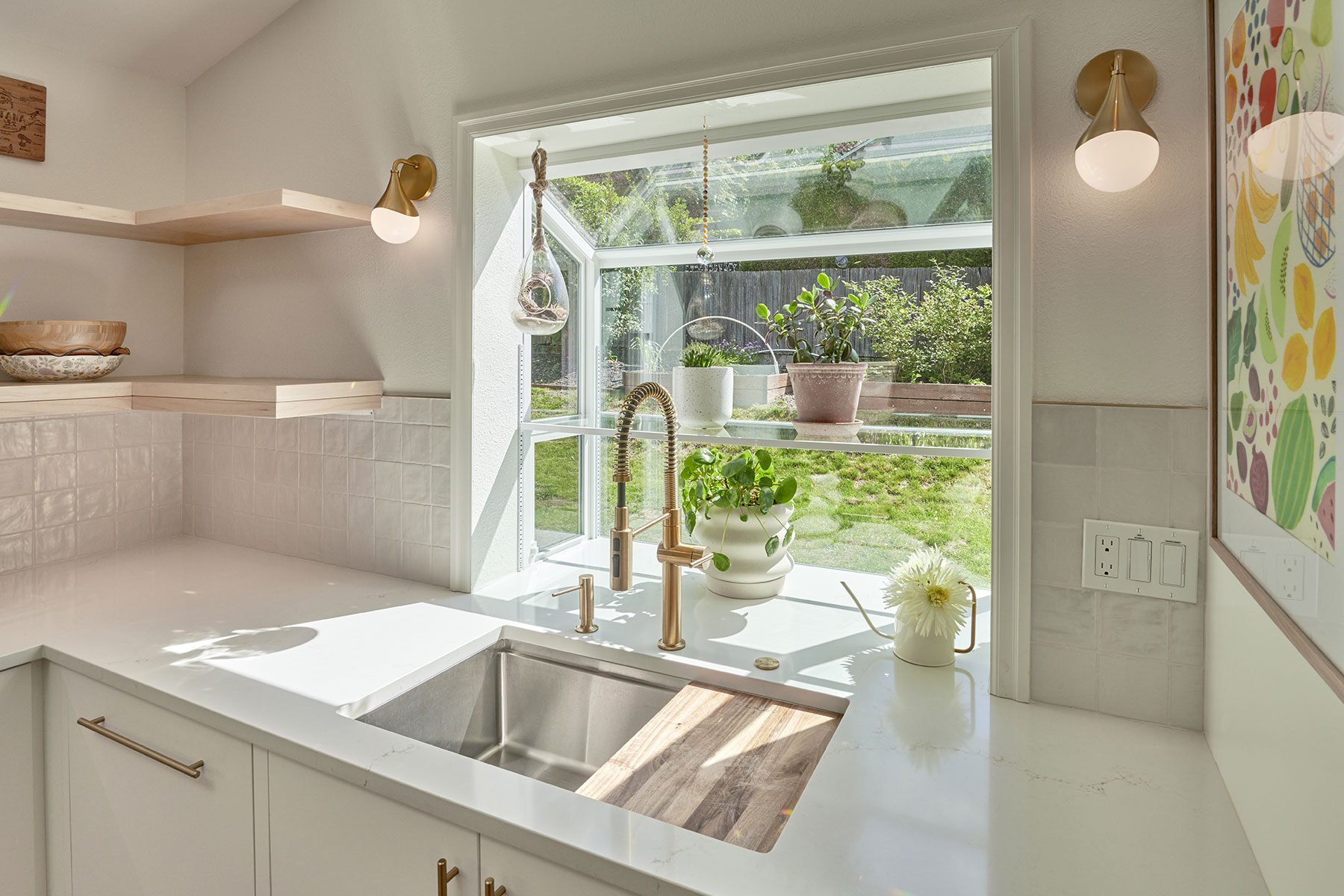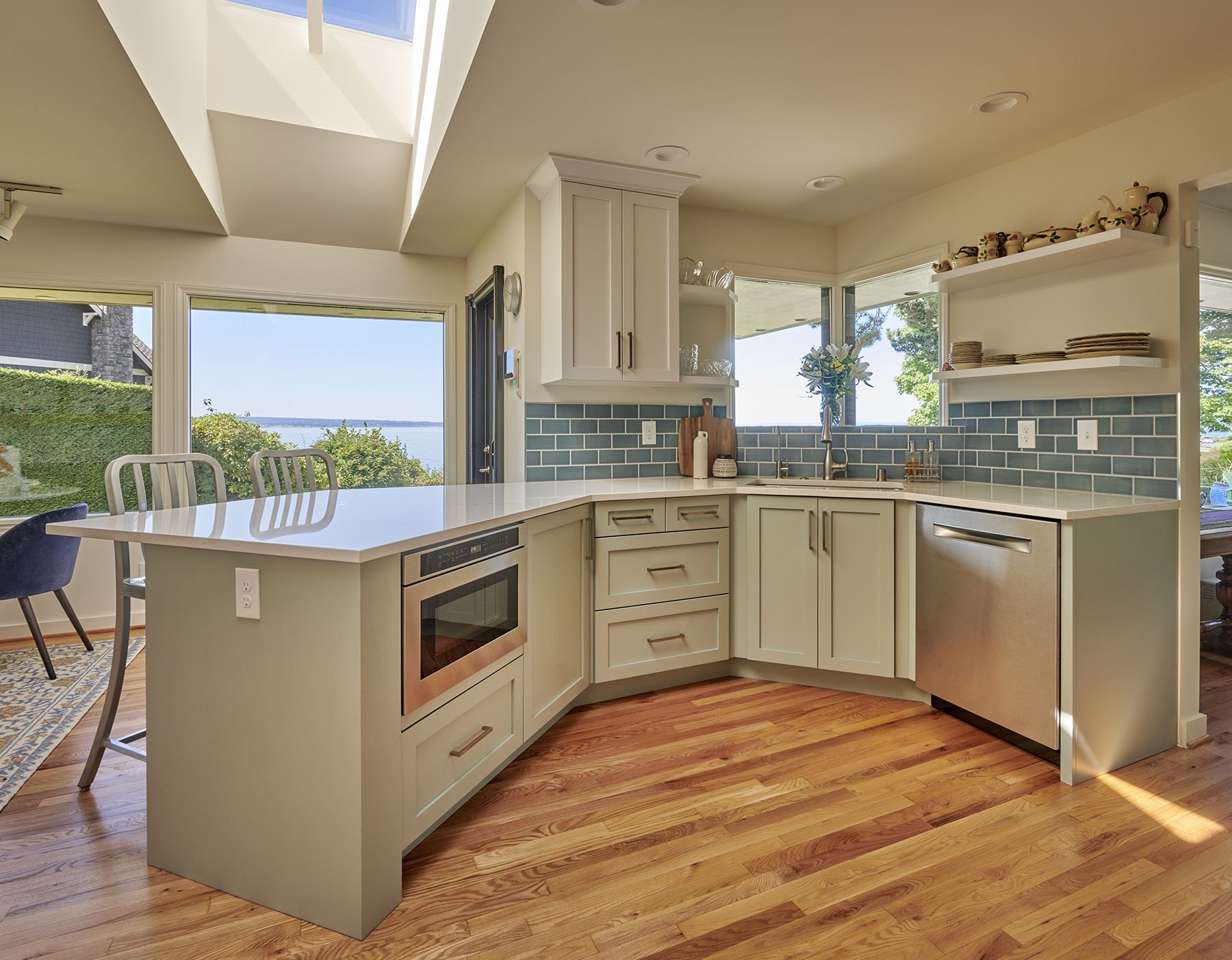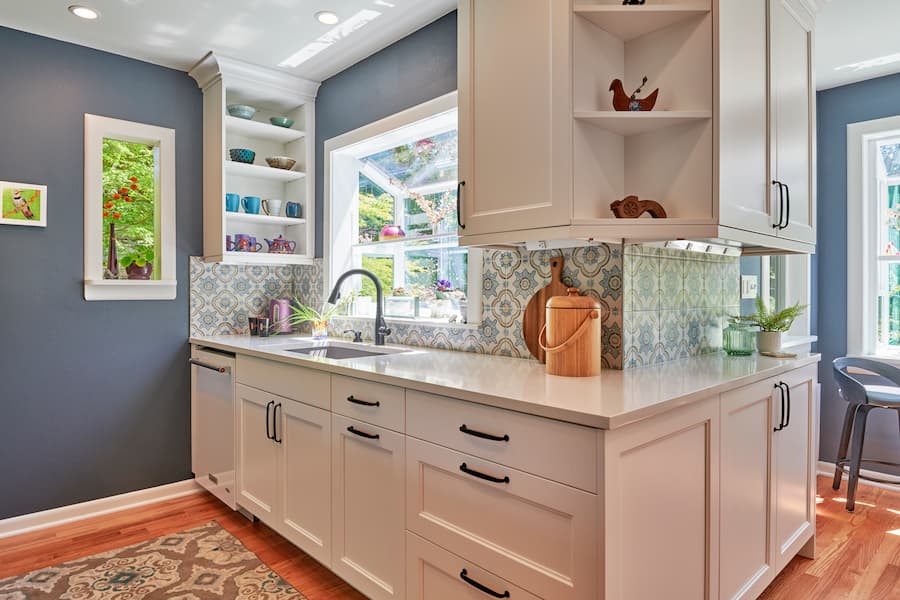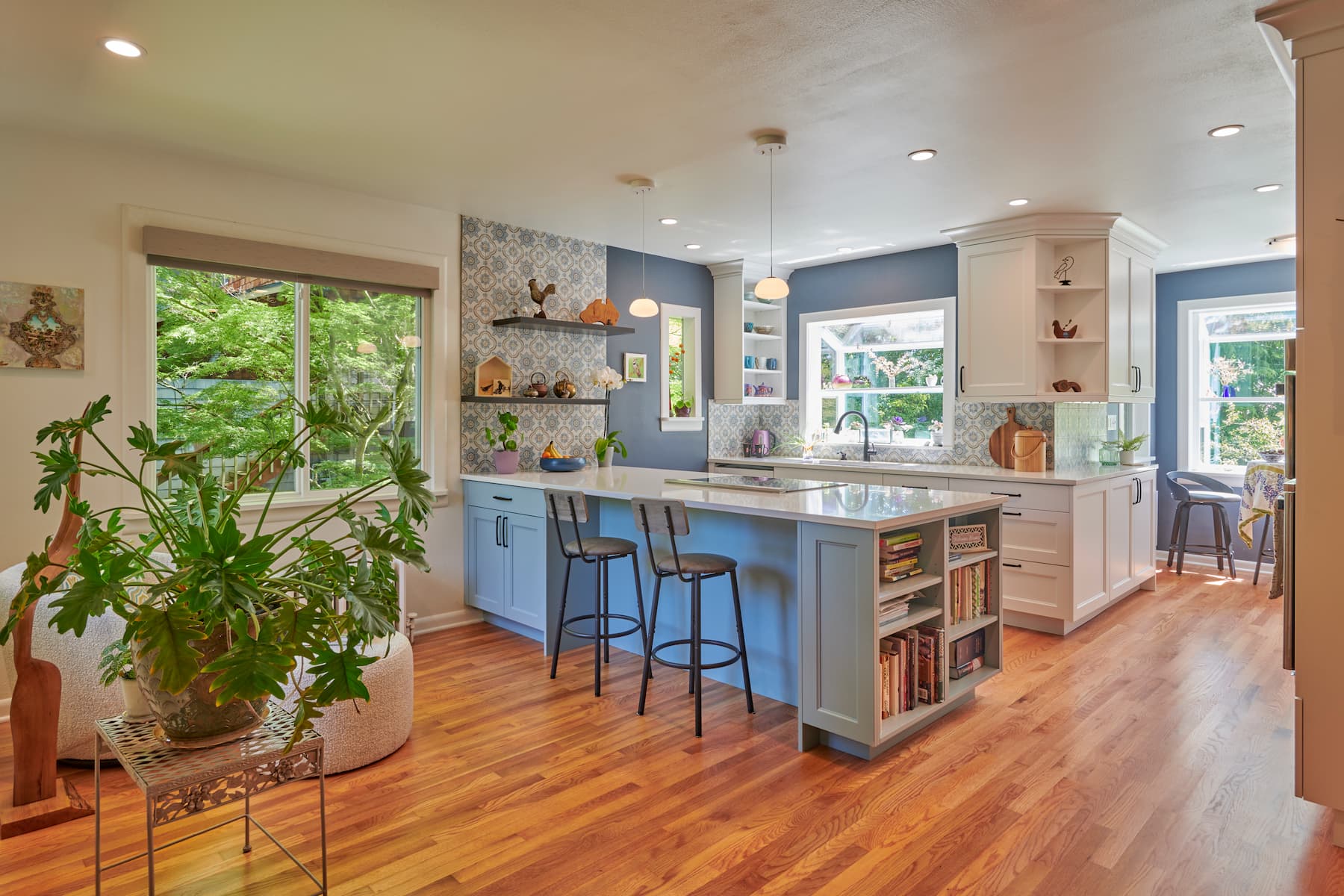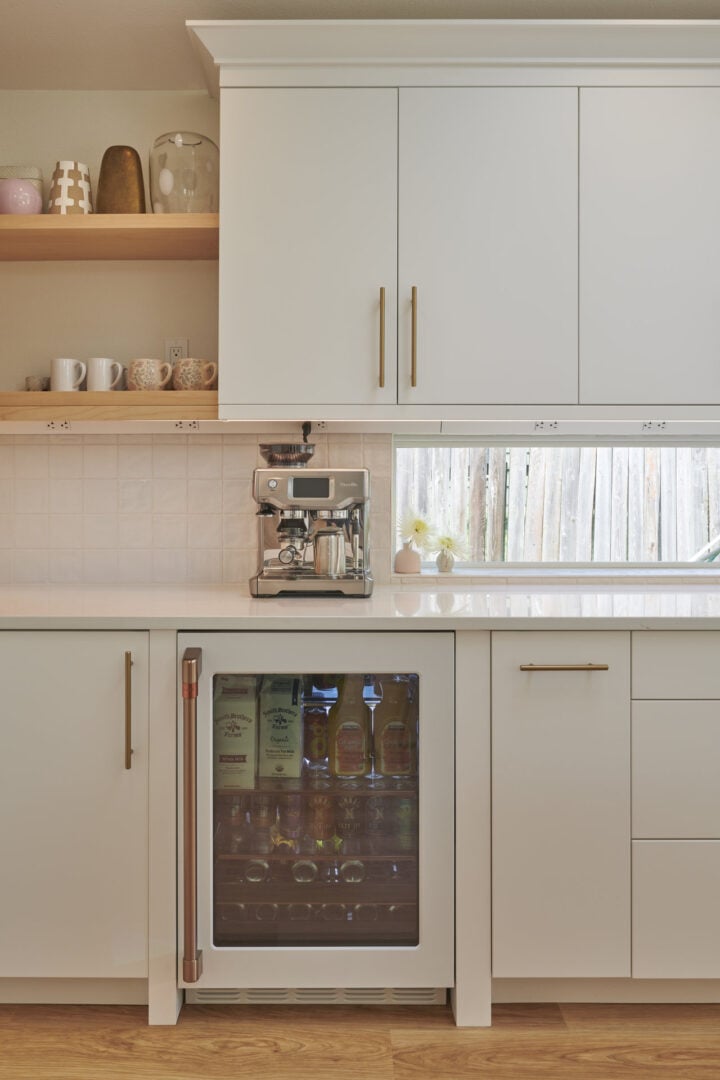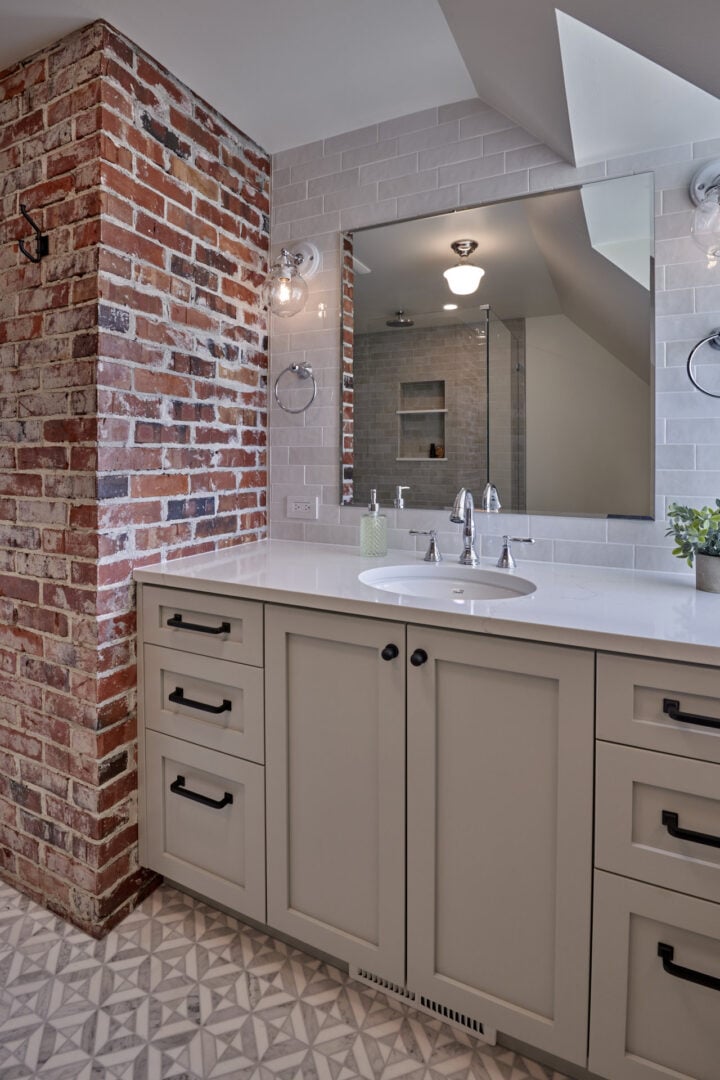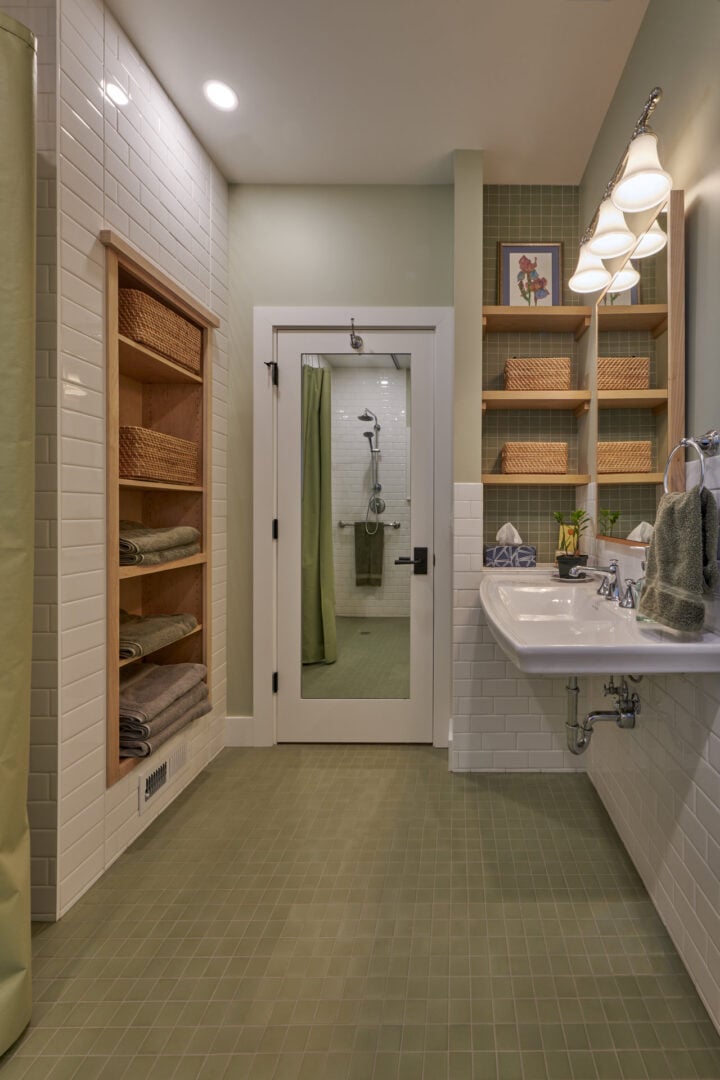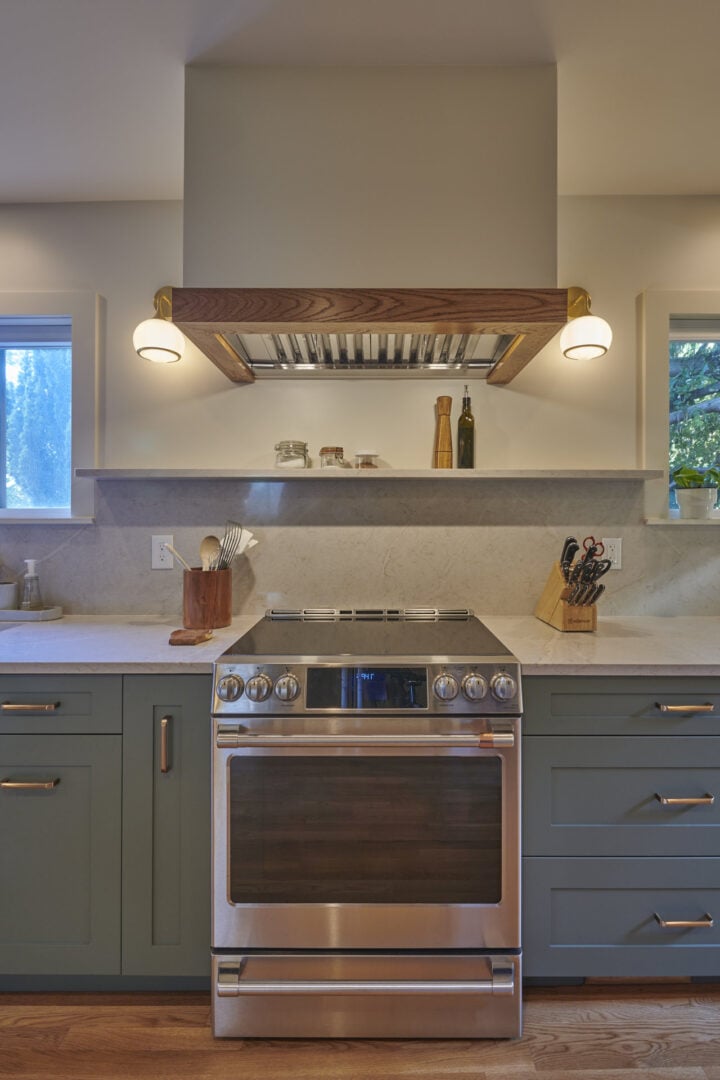Picking the right material for your counters can be a daunting task. There are countless options—granite, quartz, marble, solid surface—each with their own advantages and disadvantages. Like every home improvement project, it ultimately comes down to personal preference and budget. With so many options to wade through, it can be challenging to know where to start.
Two of the most popular choices for countertop materials for homeowners and designers alike are granite and quartz, both prized for their beauty and durability, as well as their quartz crystals and other natural materials. Both countertop materials are beautiful, durable, and add a level of luxury to kitchen and bathroom design. If you watch any number of HGTV shows, you’re probably aware that people are usually fans of one or the other.
I’m noticing that more homeowners are choosing quartz over granite these days, and I wanted to share some of their reasons. I certainly wouldn’t tell anyone what they should or should not choose for their own home, but as you’ve probably guessed from the title of this post, I’m a big fan of quartz.
As I see it, there are a lot of quartz countertop pros and not a lot of cons. However, it’s important to consider the cons of quartz countertops, such as susceptibility to scratches and the need for careful maintenance.
So why is quartz gaining popularity? Here are 10 advantages of quartz countertops over granite, plus a closer look at how these two materials compare.
Quartz countertops versus granite: What’s the difference?
Before we begin, it’s essential to know the basics of both of these countertop materials. Granite is a natural stone that is mined, milled, and polished to create slabs and tiles, making it one of the most popular natural stone countertops. Granite can vary in colors and patterns. There are no two granite countertops that are identical, because nature doesn’t repeat itself.
Quartz, on the other hand, is not entirely natural and is an engineered stone that incorporates quartz crystals for added durability and aesthetic appeal. It is 95% ground natural stone combined with 5% polymer resins and pigments. This process creates a more consistent, customizable, and low-maintenance surface with barely visible seams.
So, how does an engineered stone outperform a natural one? Let’s get into the ten advantages quartz has over granite.
Quartz or Granite? The Pros, Cons, and Key Differences
1. Uniform and Consistent Appearance
Unlike natural stone countertops, quartz surfaces can be manufactured to have a uniform appearance. If your countertop design would benefit from having an even color and consistent pattern, this is a clear advantage for quartz. On the other hand, granite varies greatly from slab to slab, so you may not get the exact look you envisioned.
Pro tip: If you love the natural veining of marble or granite, many quartz styles mimic this aesthetic, without the special maintenance!
2. Repairs Are Easier
Because of the uniformity, repairs are much easier. While it’s incredibly unlikely for a quartz counter to chip, if it does, replacing a broken piece is simple. Conversely, with a granite countertop, you could have a tough time matching colors or patterns to make repairs.
3. Range of Colors and Styles
On the topic of colors, you can find quartz counters in virtually any color or pattern you’d like. From sleek, modern tones to designs that resemble natural stone, marble, or even concrete, you’ve got so many more options. No matter what your house color combinations are, you’ll be able to find a quartz countertop to match your aesthetic. Meanwhile, granite’s color and veining are determined by nature, meaning your options are limited to what’s available in quarries.
4. Quartz is More Eco-Friendly
Because granite is mined out of the ground and usually transported long distances, it has a larger carbon footprint than quartz, which can also be more resistant to stains than traditional stone surfaces. Quartz, on the other hand, is often made from locally sourced and recycled minerals so it can be more environmentally friendly than granite.
5. Lower Maintenance and No Sealing Required
Granite is porous, which means it has to be resealed annually. It’s also vital to clean granite counters with a mild soap every day to avoid staining and to promote longevity. Quartz, on the other hand, is a non porous surface that doesn’t have to be sealed and is known for its low maintenance requirements. Plus, it resists staining from things like coffee, wine or oil, offering exceptional stain resistance compared to other countertop materials.
6. Higher Durability and Scratch Resistance
While both materials are durable, quartz is harder than granite, nearly indestructible, and stain resistant, making it ideal for busy kitchens or bathrooms. This means that quartz is more resistant to scratches, chips, and cracks. Quartz is generally considered slightly harder than granite on the Mohs scale, which helps explain why quartz countertops tend to offer better scratch resistance in everyday use, though durability can vary by product and fabrication. Granite, while durable, is more prone to chips, especially along the edges.
7. Naturally Antibacterial
Because quartz is non-porous, it resists bacteria, mold, and mildew. Granite, on the other hand, is porous and must be resealed and regularly cleaned to avoid bacteria build-up. Quartz’s non-porous nature makes it an ideal choice for both kitchen countertops and bathroom countertops, combining hygiene with stain resistant durability.
8. It Can Mimic Any Material
As I mentioned, quartz comes in a wide variety of colors. It can mimic the look of other stones, too. So, if you love the look of other natural stone countertops like granite or marble, but prefer the quartz advantages, you can get both with quartz. You can even make your quartz counters look like white solid surface countertops, except unlike Corian, quartz has a depth and complexity to its appearance that solid surface can’t mimic.
9. Similar Price Point to Granite
Despite all the advantages listed here, quartz is priced similarly to granite. So, you’ll pay about the same for both materials even though quartz is more durable, lower maintenance, and easier to repair. The cost of quartz can vary from $40 to $100 per square foot, depending on the quality and design.
10. Quartz Countertops Can Have Longer Warranties
Because of its durability, companies typically offer an outstanding warranty on their quartz countertops. The chances of you having to use it are incredibly low, but you’ll have it if you need it. In fact, many quartz counters come with lifetime warranties. Granite counters don’t generally boast the same type of warranties because damages are more common.
What About Heat Resistance?
One of the main benefits of quartz countertops is heat resistance. Quartz countertops offer a significant advantage in this regard over many other materials, including natural stone.
While quartz countertops are quite heat-resistant, it’s important to note that they are not entirely immune to heat damage. The resin used to bind the quartz particles can be susceptible to damage from excessive heat, potentially causing discoloration or cracking.
To protect your quartz countertops and maintain their pristine appearance, it’s recommended to avoid direct sunlight on the surface for extended periods and to use trivets or hot pads when placing hot pans directly on the surface. Additionally, avoiding sudden and extreme temperature changes can help prevent any potential damage. By taking these simple precautions, you can ensure that your durable quartz countertops remain a beautiful and functional part of your kitchen for years to come.
Wait, isn’t quartz a mineral?
Yes, it’s confusing. Quartz is a naturally occurring mineral composed of silicon and oxygen atoms, often forming beautiful quartz crystals, making it one of the most abundant minerals on Earth. But we’re not talking about the pure mineral here in its crystalline form. “Quartz” in the context of countertops is composed of the mineral quartz that has been ground up and bonded into an engineered stone product. These engineered quartz countertops are crafted by combining natural quartz with resin and other materials, resulting in a strong and durable surface that stands up to daily wear and tear.
Choose the right countertop for you
Both quartz and granite have their advantages, but for homeowners looking for a low-maintenance, durable and stylish option, the advantages of quartz countertops are obvious making them the better choice. Quartz countertops truly do combine style and durability without compromise.
Choose quartz if:
- You want a countertop that’s easy to maintain (no sealing required!)
- You prefer a uniform appearance with more color options
- You need a surface that’s highly durable and scratch-resistant
- You want a more eco-friendly countertop
- You’re considering a kitchen island or other surfaces that benefit from stain resistance and low maintenance
Choose granite if:
- You love the unique, natural look of stone
- You don’t mind sealing your countertops annually
- You prefer a heat-resistant surface for heavy cooking
You aren’t just limited to quartz and granite, either. There’s marble, laminate, solid surface, glass, concrete, and more. The countertop material you choose for your home is a personal decision and one that you should think about carefully.
Because it can be overwhelming trying to sift through all your choices to find the perfect countertop material, I would recommend you start with a couple, like granite and quartz. Then pick which one of the two is superior in your book. Play a comparison game until you’re left with a clear winner. For DIY projects, quartz countertops and other natural materials provide an excellent balance of beauty and durability, allowing homeowners to create stunning surfaces that can withstand direct sunlight and daily wear.
When it comes to granite and quartz counters, we think they’re both great. We believe that as long as you’re happy with the final result, you’ve made a great choice. Remember, remodeling should be exciting. Incorporating stone surfaces and bathroom countertops that are stain resistant ensures that your remodeling results are both functional and visually appealing for years to come. It’s all about renovating your house to get exactly what you want. Contact us today for a consultation—we’d love to help you design your dream kitchen or bathroom!
Mandy Lee is a contributor to Innovative Construction Materials. She is a blogger and content writer for the building materials industry. Mandy is focused on helping fellow homeowners, contractors, and architects discover materials and methods of construction that increase property value, maximize energy savings, and turn houses into homes.
